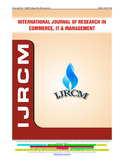| dc.description.abstract | Change is an inevitable part of life, a well-planned and formulated change, can produce positive results. Despite planning change, change is hard to incorporate,
accept and appreciate. Change has an impact on the individuals and the organization as a whole, and no matter how small, they always encountered resistance
from within itself. The police in Kenya have always been characterized by many years of impunity in various forms such as embezzlement of state resources, endemic
corruption, non-compliance with the law as well as illegal political interference. Key police reforms were undertaken by the government of Kenya to make sure that
the police are at par with international standards, in an attempt to move away from reactive nature of the police to a proactive and service oriented policing.
Despite this, the reform process has faced various challenges emanating within and without the organization. Therefore, this research aimed at examining the
challenges of change management on service delivery in Administration Police Service in Murang’a County. The study adopted descriptive casual–effect research.
The sample of 135 officers were used to obtain information. The researcher adopted cluster, purposive, stratified, and random sampling technique to enable adequate
representation of officers across all ranks in the county. Primary data were collected using questionnaires while secondary data obtained from published
documents including journals, periodicals, magazines and police reports. Data analysis was done through the use of SPSS version 17 and Excel. Inferential and
descriptive statistics were used to describe features of the data to be collected. Presentation of the data was done through the use of tables, graphs, and charts.
The final results of this study is relevant for fellow researchers, policy makers and managers of the police service, among other beneficiaries especially in the field
of change and management in general. | en_US |

